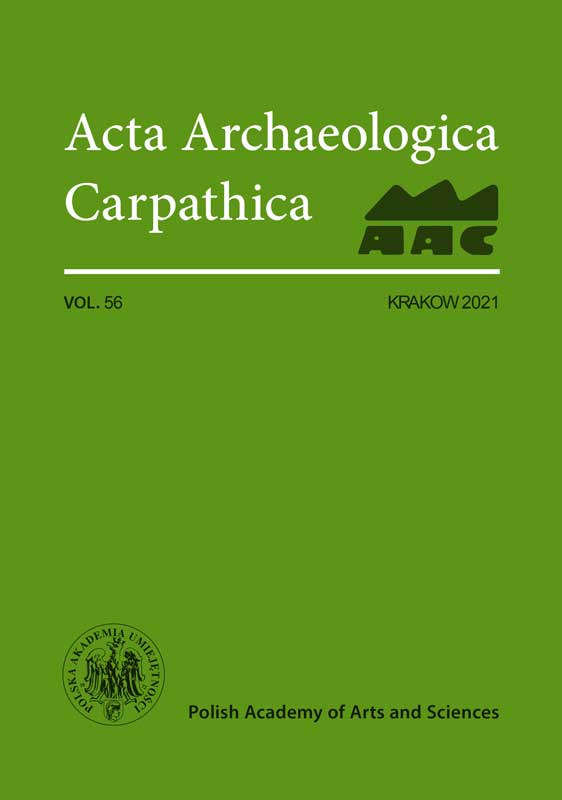Barrows in the funeral space at the turn of the Final Neolithic and the beginning of the Bronze Age in the Carpathian basins of Vistula and San rivers
Barrows in the funeral space at the turn of the Final Neolithic and the beginning of the Bronze Age in the Carpathian basins of Vistula and San rivers
Author(s): Paweł JaroszSubject(s): History, Archaeology, Prehistory
Published by: Wydawnictwo Uniwersytetu Jagiellońskiego
Keywords: Carpathian foothills; Corded Ware culture; Mierzanowice cultures; barrows; radiocarbon chronology
Summary/Abstract: The aim of the paper is to present funeral customs of communities that inhabited the Carpathian foothills of Vistula and San rivers basins at the Final Neolithic and the Early Bronze Age representing Corded Ware and Mierzanowice cultures in the light of new chronometric data. These radiocarbon data were obtained for barrows at site 3 in Średnia, Przemyśl district and Jawczyce, Wieliczka district site 1, mound 2. According to conducted investigations the earliest barrows in this region can be dated to the beginning of the 29th century BC. Then in the younger phase of the Corded Ware culture the exploitation of existing mound continued so subsequent graves were dug into the embankment. This burial rite lasted until the turn of the 24th and 23rd centuries BC so can be synchronised with the presence of niche graves to the north of Carpathian foothills. Afterwards during the Early Bronze Age starting at the 22nd century BC communities of the Mierzanowice culture also chose existing mounds as a place to bury their dead. Therefore one can conclude that in funeral rites of the Corded Ware and Mierzanowice cultures groups in the Carpathian foothills the barrow as the burial place of their ancestors played the main role.
Journal: Acta Archaeologica Carpathica
- Issue Year: 2021
- Issue No: 56
- Page Range: 153-174
- Page Count: 21
- Language: English

